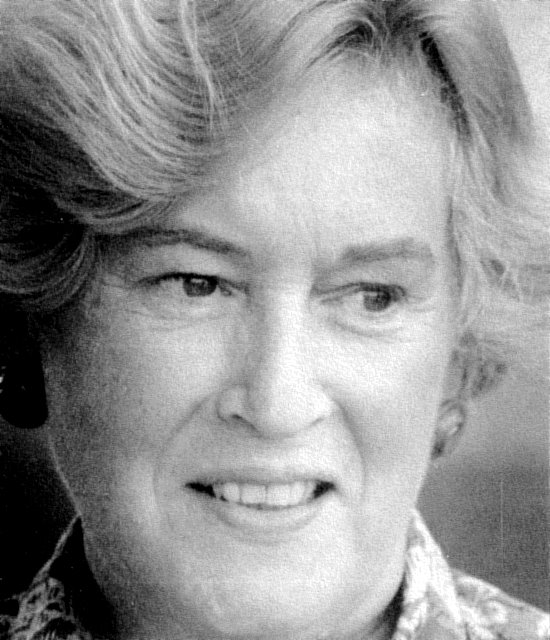Twenty years ago, the Wheaton Alumni magazine began a series of articles in which Wheaton faculty told about their thinking, their research, or their favorite books and people. Former Dean of Students Ruth Bamford (who worked at Wheaton from 1970-1994) was featured in the December 1991/January 1992 issue.
 Often I find myself thinking about how hard students at Wheaton work. It is no wonder they look forward to days off and holidays just like the rest of us. While their lives are often very exciting, they are also tough and tiring as well.
Often I find myself thinking about how hard students at Wheaton work. It is no wonder they look forward to days off and holidays just like the rest of us. While their lives are often very exciting, they are also tough and tiring as well.
It’s like this: Most students have a part-time job. They spend anywhere from 4 to 30 hours a week at work. A full course load means 12 to 15 hours of lecture and lab in addition to the multiple hours spent preparing for daily written assignments, tests, and papers. Remember “all-nighters?” They are still a popular way for students to squeeze everything they can into the day and night. On top of all this, many students are involved in a weekly outreach or ministry, which takes all or part of an evening.
All this activity not being enough, most students place a high value on relationships and spend a lot of time talking, playing, praying, falling in love, and out, and making up!
Summer does not even bring relief from busy schedules. There are summer jobs to be had, summer youth programs to lead, and plans for life after college to be made.
Will there ever he a time in their lives when there is more opportunity for enriching experiences?
I am often asked how students have changed over the years.
Taking an outward glance, students today are much more affected by our culture than they have been in years past. Popular music and clothes fashions change every six months or so and are much more casual, Students’ dress fluctuates anywhere from conservative to funky or downright weird. Except for freshmen, most students have access to a car. Everyone has a favorite TV show.
Taking a deeper look, the “sins of the fathers” are affecting these young people. Some are torn emotionally as a result of divorce, abuse, and addiction within their families. They are also dealing with tough issues in the classroom and in their relationships including: environmental ethics, equality for women and minorities, hunger for two-thirds of our world, economic recession for most of the world, and popular views of sexuality that are ungodly. (For those of you interested in understanding how our popular culture has affected our youth, I recommend that you read Dancing in the Dark. (Schultze, Anker, Bratt, et.al. Grand Rapids: Eerdmans, 1991).
From an educational standpoint, students coming in today certainly know a great deal more of what is going on in the world than we did, and a significant number of them have been overseas. Computer literacy is as important today as knowledge of a foreign language. Students at Wheaton today are both bright and culturally aware.
They are also, however, much more individualistic. Except for required chapel services where we enjoy regular worship together, all-school events draw much smaller numbers than in years past. On the other hand, these students have a heart for God, and often put us to shame with their zeal for evangelism and their excitement for reaching out to those less fortunate than they are. An exception to the general rule: recently the Gospel Choir, 80 strong, led an evening of exciting worship with almost 2000 in attendance.
What do I think of today’s students? Frankly, I’m impressed. They are extremely creative and energetic. Granted, there are varying degrees of personal maturity, but overall their commitment to the Lordship of Christ is very strong.
They can be very critical of the way decisions are made. Many students would like to see the “no dancing” rule changed, but despite this, they show restraint, honesty, and thoughtfulness in how they approach this issue. They have good ideas, and expect to be treated with fairness and integrity.
Being an administrator has its ups and downs–mostly ups, however. We love these students. They are God’s gift to us, and to each other. We learn from them the idealism and hope that still believes that individuals and groups with commitment can make a difference in this world. They keep us on our toes as they question us and look to us for models of the ethics and commitment to the Lordship of Christ that we espouse.
———-
Following graduation from Wheaton, Ruth taught public school music in Detroit, Michigan. After earning her master’s degree in administrative services front Michigan State University, she accepted a position as counselor in charge of student activities at West Suburban Hospital School of Nursing. After ten years at West Sub, Ruth was invited by Dr. Henry Nelson, former vice president of student development, to become Associate Dean of Students at Wheaton College. For the last 19 years, Ruth has coached, supervised, trained, assisted, counseled, and befriended thousands of Wheaton College students.